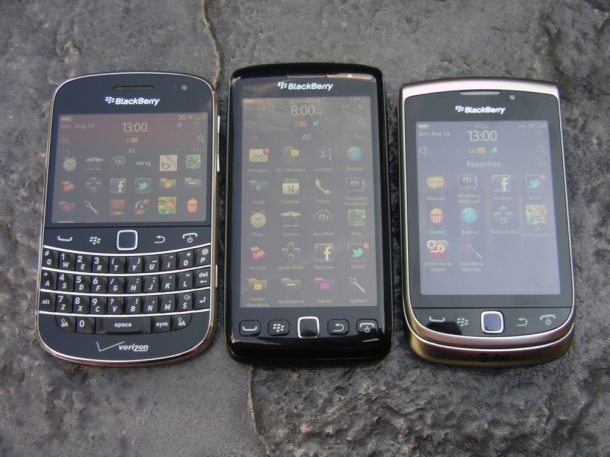RIM's BlackBerry outage: $350 million max hit, but losing enterprise

Research in Motion's costs related to its outage last week don't amount to much, but the longer-term sales hit is likely to be much higher.

But here's where things get dicey for RIM. The outage comes at the worst time for RIM and hurts its reputation with the one audience keeping the company alive---CTOs, CIOs and IT departments. The contrast between RIM and Apple, which sold 4 million iPhone 4S devices over a weekend, couldn't be more stark. Misek wrote in a research note:
We believe the worldwide server disruptions caused harm to the brand's image. In our view, this opens the door to competitors as corporate CTOs and IT departments may now be more open to explore other options besides the BlackBerry standard.
Alex Gauna, an analyst at JMP Securities, said:
Infrastructure glitches occur for the Research in Motion about once a year on average; however, this snafu is particularly negative given its scale, duration, and timing coming on the heels of all the other device embarrassments that are diminishing if not outright dismantling its brand equity.
At the Gartner Symposium conference in Orlando, I've run into about six CIOs and chatted about BlackBerry. Here's a sampling that signals potential doom for RIM.
- "I can't see buying BlackBerry enterprise server when we have ActiveSync. RIM infrastructure is playing middleman to protect margins."
- "We're actively moving to iOS."
- "Employees are bringing devices and they aren't bringing BlackBerrys."
Now that's a small sample, but it has only been a few hours here. Technology executives can smell it when a vendor is scrambling. And RIM is scrambling. The natural reaction for IT buyers is to wring concessions out of RIM because the company can't play the premium game anymore.
If RIM loses its enterprise cred it is done. Unlike Zack Whittaker, I think it's difficult to argue the enterprise needs RIM anymore.
Wunderlich Securities analyst Matthew Robison said:
New BlackBerry 7 products have strengthened RIM somewhat in recent weeks, but for enterprise customers the most memorable feature of this week’s outage may be that it came at a time when alternatives to RIM are increasingly in use or under study by IT departments – especially since the advent of tablets. Applications for SSL encryption, remote wiping, and other BlackBerry-like security features are increasingly being deployed with products from other ecosystems.
Meanwhile, RIM is scrambling so it can't focus on longer-term game changers. Misek continued:
Our checks indicate that the RIM has been reassigning software engineers to whatever the fire drill is for the day. In the spring it was fixing the Playbook bugs, in the summer it was OS 7, and in the fall it has been rewriting the NOC/ node code base to be compatible with QNX. While management stated that the NOC/node transition was not a cause of the outage, we believe the crisis management showcased by RIM seems to be getting a C or lower grade from the Street.
Toss in the fact that OS 7 handset sales are slowing and the axiom that no one gets fired for buying BlackBerrys goes out the window.
Related:
- BlackBerry’s outage post-mortem: Where did it all go wrong?
- RIM’s BlackBerry outages come at worst possible time
- iCloud vs. Exchange, Gmail: Pick your choice wisely
- David Gewirtz: Making Android secure enough for secure government work
- BlackBerry service down again in Europe, Middle East, Africa: Twice in two days
- BlackBerry services woes hit United States, Canada in worldwide fault
- Widespread disruption in BlackBerry crash across Europe, Middle East, Africa
- BlackBerry issues statement over downed services
- BlackBerry outage spans three continents
- BlackBerry's outage post-mortem: Where did it all go wrong?
- BlackBerry breaks wall of silence; describes current status in lay terms
Across the CBS Interactive network:
- TechRepublic: 22% of iPhone 4S buyers are platform converts
- CNET: Activist RIM investor calls for sale, CEO shake-up
- BlackBerry Messenger vs. Apple’s iMessage
- CBS News: Users give RIM raspberries over BlackBerry glitches
- BlackBerry maker headed towards failure?
- BlackBerry’s 3-day outage over, maker says
- ZDNet Asia: BlackBerry outage not in RIM’s favor